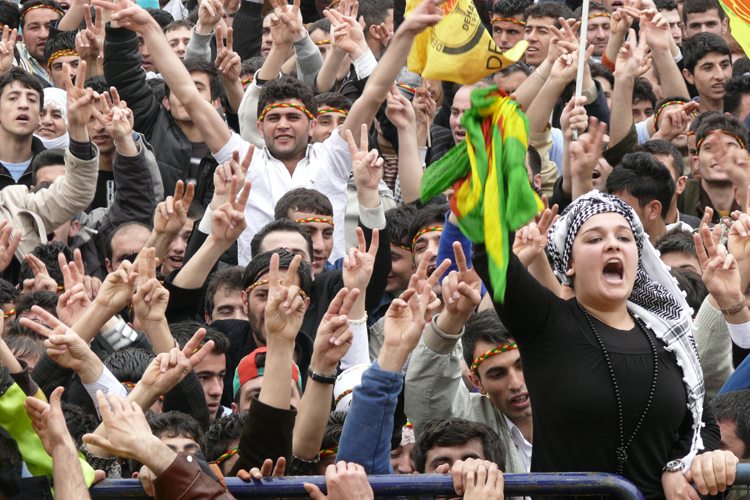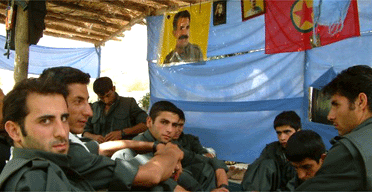Post by thracian08 on Jan 28, 2010 13:26:15 GMT -5
"Btw,Balkan Muslims,were not kicked out of the Balkans,at least not most.Mostly Circassians and Tatars were.
Also,even after the establishment of Turkey,they came up with propoganda to try and get Balkan Muslims to Turkey.
And Kemalism is about being white.Kemalism says Turkics are Aryans.They are not.You obviously havent seen my old thread. "
Btw,Turkics come from Northeast of Asia,not mainland Central Asia. "
You are very incorrect here. Turks had to leave the Balkans WWI helllo!
Turks are from Central Asia.
Take a look at this article:
yordam.manas.kg/ekitap/pdf/Manasdergi/sbd/sbd20/sbd-20-18.pdf
More information:
As a result of the Russian - Ottoman War of 1877 - 1878, Muslims were forced from conquered areas in Bulgaria, Montenegro, and Serbia. Later, the Balkan allies either exiled or caused the deaths of a majority of the Muslims from territories they conquered during the Balkan War of 1912 - 1913. Other Balkan Muslims became refugees in regions taken by Greece after World War I. Some 400,000 refugees came to Turkey during the Greco-Turkish population exchange of the 1920s. The collapse of the Soviet Union prompted several "breakaway" republics in southeastern Europe and sparked or reignited varied political, cultural, and religious clashes. The 1990s proved to be a difficult time, especially with the disintegration of Yugoslavia. Roughly 800,000 Muslims left Bosnia after it declared independence from Yugoslavia and conflict with Serbia escalated in 1991.
Historically, the Ottoman Empire — and the Turkish republic succeeding it — were the primary destination for Muslim refugees from areas conquered — or re-conquered — by Christian powers, notably Russia in the Caucasus and Black Sea areas, Austria-Hungary, Greece, Bulgaria, Serbia, Montenegro (later Yugoslavia) and Romania in the Balkans. This has continued to the present day, with large numbers of Bosniak and Chechen refugees entering Turkey as a consequence of wars in Bosnia and Chechnya in the 1990s. Large numbers of Kurds fled north from Iraqi Kurdistan during the First Gulf War in 1991, though nearly all repatriated after the cessation of hostilities and the establishment of the Kurdish Autonomous Region in northern Iraq in the same year.
In accordance with the 1923 Treaty of Lausanne, Turkey accepted approximately 500,000 Muslims, who were forced to leave their homes in the Balkans, in exchange for nearly 2 million Greeks, who were forced to leave Anatolia. By special arrangement, Greeks living in Istanbul and Turks living in the Greek part of Thrace were exempted from the compulsory exchanges.
After 1925 Turkey continued to accept Turkic speaking Muslims as immigrants and did not discourage the emigration of members of non-Turkic minorities. More than 90 percent of all immigrants arrived from the Balkan countries. Between 1935 and 1940, for example, approximately 124,000 Bulgarians and Romanians of Turkish origin immigrated to Turkey, and between 1954 and 1956 about 35,000 Muslim Slavs immigrated from Yugoslavia. In the fifty-five-year period ending in 1980, Turkey admitted approximately 1.3 million immigrants; 36 percent came from Bulgaria, 30 percent from Greece, 22.1 percent from Yugoslavia, and 8.9 percent from Romania. These Balkan immigrants, as well as smaller numbers of Turkic immigrants from Cyprus and the Soviet Union, were granted full citizenship upon their arrival in Turkey. The immigrants were settled primarily in the Marmara and Aegean regions (78 percent) and in central Anatolia (11.7 percent).
The most recent immigration influx was that of Bulgarian Turks and Bosnian Muslims. In 1989 an estimated 320,000 Bulgarian Turks fled to Turkey to escape a campaign of forced assimilation. Following the collapse of Bulgaria's communist government that same year.
and excuse me but no one would want to leave where they grew up unless they had to.
Also,even after the establishment of Turkey,they came up with propoganda to try and get Balkan Muslims to Turkey.
And Kemalism is about being white.Kemalism says Turkics are Aryans.They are not.You obviously havent seen my old thread. "
Btw,Turkics come from Northeast of Asia,not mainland Central Asia. "
You are very incorrect here. Turks had to leave the Balkans WWI helllo!
Turks are from Central Asia.
Take a look at this article:
yordam.manas.kg/ekitap/pdf/Manasdergi/sbd/sbd20/sbd-20-18.pdf
More information:
As a result of the Russian - Ottoman War of 1877 - 1878, Muslims were forced from conquered areas in Bulgaria, Montenegro, and Serbia. Later, the Balkan allies either exiled or caused the deaths of a majority of the Muslims from territories they conquered during the Balkan War of 1912 - 1913. Other Balkan Muslims became refugees in regions taken by Greece after World War I. Some 400,000 refugees came to Turkey during the Greco-Turkish population exchange of the 1920s. The collapse of the Soviet Union prompted several "breakaway" republics in southeastern Europe and sparked or reignited varied political, cultural, and religious clashes. The 1990s proved to be a difficult time, especially with the disintegration of Yugoslavia. Roughly 800,000 Muslims left Bosnia after it declared independence from Yugoslavia and conflict with Serbia escalated in 1991.
Historically, the Ottoman Empire — and the Turkish republic succeeding it — were the primary destination for Muslim refugees from areas conquered — or re-conquered — by Christian powers, notably Russia in the Caucasus and Black Sea areas, Austria-Hungary, Greece, Bulgaria, Serbia, Montenegro (later Yugoslavia) and Romania in the Balkans. This has continued to the present day, with large numbers of Bosniak and Chechen refugees entering Turkey as a consequence of wars in Bosnia and Chechnya in the 1990s. Large numbers of Kurds fled north from Iraqi Kurdistan during the First Gulf War in 1991, though nearly all repatriated after the cessation of hostilities and the establishment of the Kurdish Autonomous Region in northern Iraq in the same year.
In accordance with the 1923 Treaty of Lausanne, Turkey accepted approximately 500,000 Muslims, who were forced to leave their homes in the Balkans, in exchange for nearly 2 million Greeks, who were forced to leave Anatolia. By special arrangement, Greeks living in Istanbul and Turks living in the Greek part of Thrace were exempted from the compulsory exchanges.
After 1925 Turkey continued to accept Turkic speaking Muslims as immigrants and did not discourage the emigration of members of non-Turkic minorities. More than 90 percent of all immigrants arrived from the Balkan countries. Between 1935 and 1940, for example, approximately 124,000 Bulgarians and Romanians of Turkish origin immigrated to Turkey, and between 1954 and 1956 about 35,000 Muslim Slavs immigrated from Yugoslavia. In the fifty-five-year period ending in 1980, Turkey admitted approximately 1.3 million immigrants; 36 percent came from Bulgaria, 30 percent from Greece, 22.1 percent from Yugoslavia, and 8.9 percent from Romania. These Balkan immigrants, as well as smaller numbers of Turkic immigrants from Cyprus and the Soviet Union, were granted full citizenship upon their arrival in Turkey. The immigrants were settled primarily in the Marmara and Aegean regions (78 percent) and in central Anatolia (11.7 percent).
The most recent immigration influx was that of Bulgarian Turks and Bosnian Muslims. In 1989 an estimated 320,000 Bulgarian Turks fled to Turkey to escape a campaign of forced assimilation. Following the collapse of Bulgaria's communist government that same year.
and excuse me but no one would want to leave where they grew up unless they had to.































